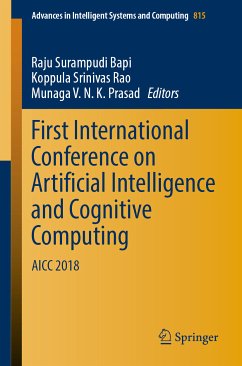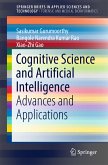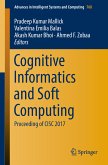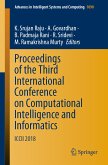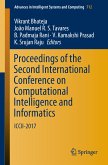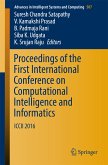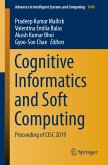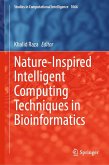This book presents original research works by researchers, engineers and practitioners in the field of artificial intelligence and cognitive computing. The book is divided into two parts, the first of which focuses on artificial intelligence (AI), knowledge representation, planning, learning, scheduling, perception-reactive AI systems, evolutionary computing and other topics related to intelligent systems and computational intelligence. In turn, the second part focuses on cognitive computing, cognitive science and cognitive informatics. It also discusses applications of cognitive computing in medical informatics, structural health monitoring, computational intelligence, intelligent control systems, bio-informatics, smart manufacturing, smart grids, image/video processing, video analytics, medical image and signal processing, and knowledge engineering, as well as related applications.
Dieser Download kann aus rechtlichen Gründen nur mit Rechnungsadresse in A, B, BG, CY, CZ, D, DK, EW, E, FIN, F, GR, HR, H, IRL, I, LT, L, LR, M, NL, PL, P, R, S, SLO, SK ausgeliefert werden.

